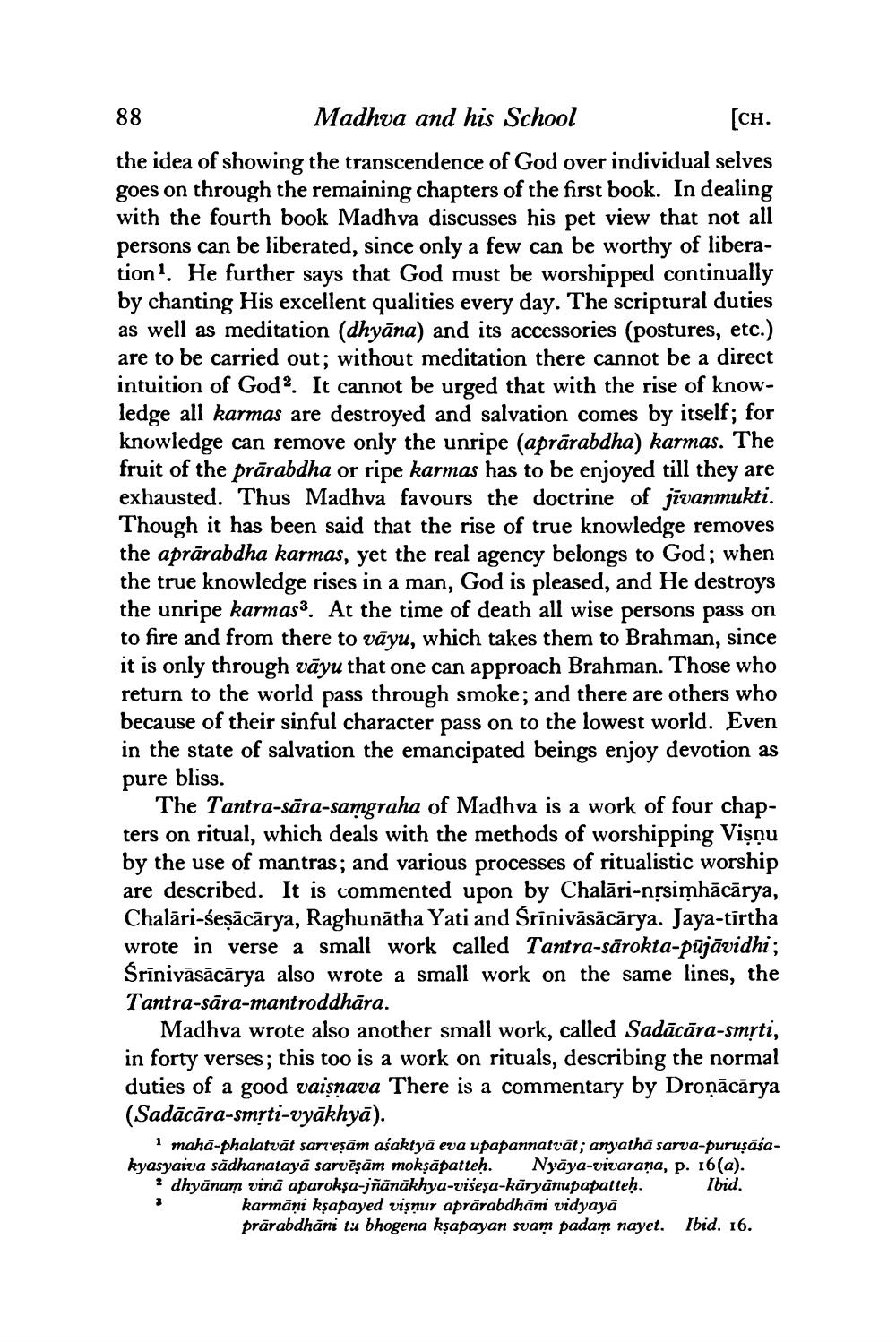________________
88
Madhva and his School
[CH.
the idea of showing the transcendence of God over individual selves goes on through the remaining chapters of the first book. In dealing with the fourth book Madhva discusses his pet view that not all persons can be liberated, since only a few can be worthy of liberation. He further says that God must be worshipped continually by chanting His excellent qualities every day. The scriptural duties as well as meditation (dhyāna) and its accessories (postures, etc.) are to be carried out; without meditation there cannot be a direct intuition of God. It cannot be urged that with the rise of knowledge all karmas are destroyed and salvation comes by itself; for knowledge can remove only the unripe (aprārabdha) karmas. The fruit of the prārabdha or ripe karmas has to be enjoyed till they are exhausted. Thus Madhva favours the doctrine of jivanmukti. Though it has been said that the rise of true knowledge removes the aprārabdha karmas, yet the real agency belongs to God; when the true knowledge rises in a man, God is pleased, and He destroys the unripe karmas3. At the time of death all wise persons pass on to fire and from there to vayu, which takes them to Brahman, since it is only through vayu that one can approach Brahman. Those who return to the world pass through smoke; and there are others who because of their sinful character pass on to the lowest world. Even in the state of salvation the emancipated beings enjoy devotion as pure bliss.
The Tantra-sara-samgraha of Madhva is a work of four chapters on ritual, which deals with the methods of worshipping Vişnu by the use of mantras; and various processes of ritualistic worship are described. It is commented upon by Chalari-nṛsimhācārya, Chalari-seṣācārya, Raghunatha Yati and Śrīnivāsācārya. Jaya-tirtha wrote in verse a small work called Tantra-sarokta-pūjāvidhi; Śrīnivāsācārya also wrote a small work on the same lines, the
Tantra-sara-mantroddhāra.
Madhva wrote also another small work, called Sadācāra-smṛti, in forty verses; this too is a work on rituals, describing the normal duties of a good vaisnava There is a commentary by Droṇācārya (Sadācāra-smṛti-vyākhyā).
1 mahā-phalatvāt sarveṣām aśaktyā eva upapannatvāt; anyathā sarva-puruṣāśakyasyaiva sadhanatayā sarvēṣām mokṣāpatteḥ. Nyaya-vivaraṇa, p. 16(a). Ibid.
dhyānam vină aparokṣa-jñānākhya-višeṣa-kāryānupapatteḥ. karmani kṣapayed vişnur aprārabdhāni vidyayā prārabdhāni tu bhogena kṣapayan svam padam nayet. Ibid. 16.
3




